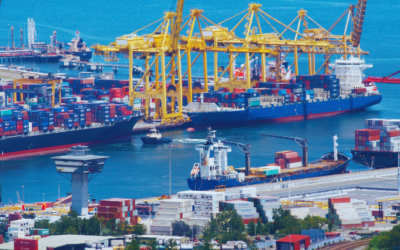SMALL BUSINESS GUIDES
Your guide to tax in Australia
What is VAT?
Value-added tax (VAT) is a tax applied/levied on the value of goods and services. It is a consumption tax system used worldwide for governments to raise revenue. As of 2020, over 160 countries employ a VAT tax type system. Sales tax system vs VAT systemThe main...
What is VAT?
Value-added tax (VAT) is a consumption tax applied at each stage of production and distribution. Learn what it means for small businesses.
What is VAT?
Value-added tax (VAT) is a consumption tax applied at each stage of production and distribution. Learn what it means for small businesses.
Stamp Duty Calculator For Cars & Property In South Australia (SA)
Buying a property or vehicle in South Australia? Here is what you need to know about stamp duty in SA.
Property and Vehicle Stamp Duty Calculator WA
Buying a property or vehicle in Western Australia? Here is what you need to know about stamp duty in WA.
How Long Does Tax Return Take To Process In Australia?
Remittance advice is an optional payment process that can help your business be more efficient and reliable. Read on to find out more.
Queensland Stamp Duty Calculator
Stamp duty in Queensland can be a significant cost when buying a property or a vehicle for your small business. Read more.
Investment property tax deductions
If you’re planning on becoming a landlord, here are the investment property tax deductions to know. Read more.
Understanding Inheritance Tax in Australia
There is no official inheritance tax on assets in Australia, but you might still be on the hook for a few tax obligations. Read more here.
Fringe Benefit Tax (FBT)
Ever thought about providing your employees with non-cash benefits? Learn what fringe benefits tax is and how it affects your small business.
Understanding Import Tax In Australia
If your business needs to bring in goods from overseas, you’ll want to understand the different kinds of import tax in Australia.
Corporate Tax Rates In Australia
Australian company tax rates vary by business size. Here is what you need to know, and why a tax advisor can help.
Calculating Stamp Duty In Victoria (VIC) For Cars & Property
Buying a vehicle or property for your small business? Learn the stamp duty rates you will need to pay in Victoria.
Stamp duty on cars and vehicles in NSW
Buying a company car? Here is how much stamp duty in NSW can cost, depending on the vehicle.
Division 7A Explained
Division 7A makes sure businesses can’t disguise taxable shareholder income from the ATO. Here’s what you need to know.
Understanding Withholding Tax For Small Business
Withholding tax from employee paychecks is standard practice in Australia, so here’s what small businesses need to know.
Online Tax Return Guide
Filing your tax return online with the ATO is pretty straightforward these days, but there are some key things you need to know first.
Guide To Small Business Income Tax Offset
The Small Business Income Tax Offset (SBITO) can be a useful way to boost your small business cashflow. Here’s how it works.
Understanding Tax Rates in Australia
Tax rates in Australia are progressive, meaning the more you earn, the more tax you’re liable to pay. Here’s what small businesses need to know.
Tax File Number application in Australia
If you wish you get paid in Australia, you probably need a Tax File Number (TFN). Here’s how to make a TFN application to the Australian Taxation Office (ATO).
Understanding franking credits
What exactly are franking credits and why do you need to understand them? Franking credits ensure shareholder dividends are not taxed twice. Let’s dive into the details.
Guide to Taxable Payments Annual Report (TPAR)
If you hire contractors in certain industries, you may well need to file a TPAR or Taxable payments annual report. Find out what it is and whether you need to file one with the ATO.
How to calculate FBT
Are you having an issue wrapping your head around fringe benefit taxes? Read on to learn how to calculate FBT for your small business.
Download your free GST guide
GST guide
There’s a lot to get your head around when you’re starting a new business, and GST is just one bit most fledgling business owners will need to get to grips with. If you’re looking for help, download our free guide to better understand GST.
Discover other small business resources
Try Reckon One free for 30 days
Cancel anytime.














































